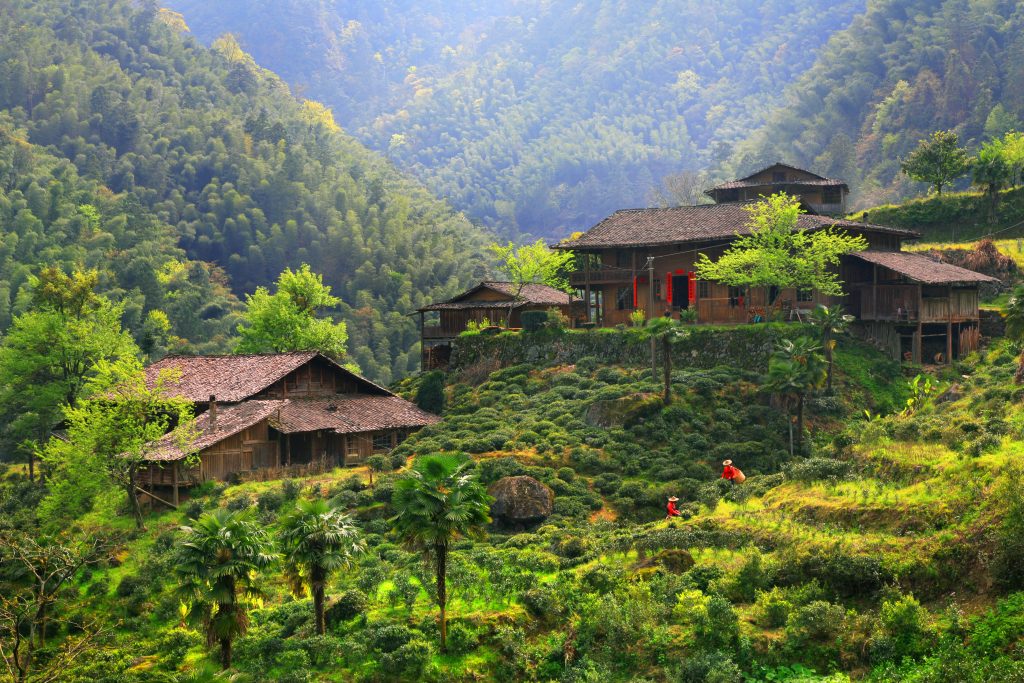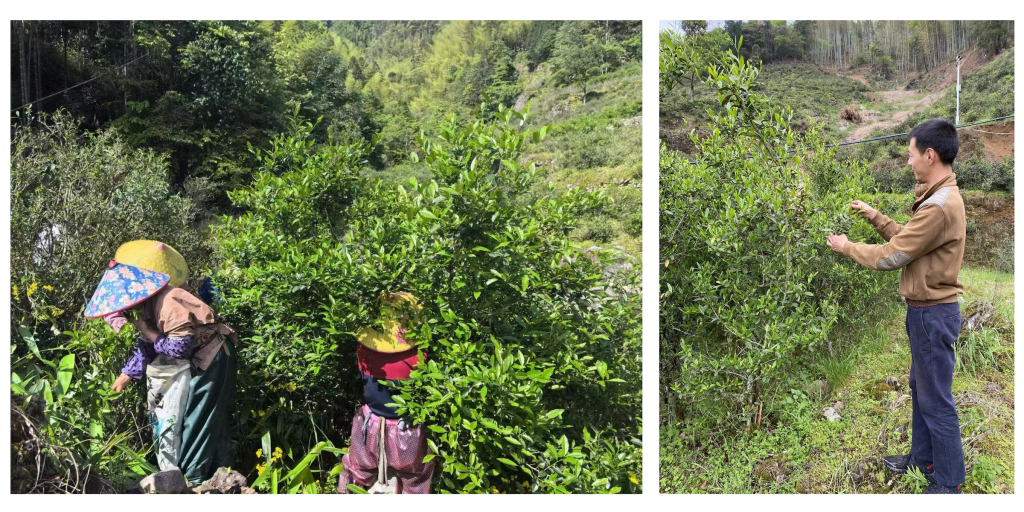$24.00 – $42.00
This experimental Tongmu red tea (aka black tea in the West) varietal showcases an oolong cultivar with unsmoked lapsang style treatment. As the gaiwan lid lifts off the leaves off the first steep, vapors of buttered pastry and mossy spring greet the senses. Orchid Grotto playfully displays a neat, tight balance of aroma/flavor, mouthfeel, and return sweetness effects on the afterbreath. These qualities pair well with the distinctly Tongmu mineral-laden "stony" character present throughout the teas coming from the area.
The cultivar used is No. 220 金牡丹 Jin Mu Dan "Golden Peony", a breed developed in the late twentieth century, and came into prominence around the turn of the century. Jin Mu Dan is a cross between 黄棪 Huang Yan and 铁观音 Tie Guan Yin cultivars and is celebrated for its floral-honey-peach character it imparts. The Li family in Tongmu planted these bushes in the early 2000s and manages them using sheng tai ecological farming practices, manually weeding once a year in July-August.
The Li family are one of just 12 households in Gu Wang Keng and have been producing tea there now for fourteen generations.

The scene from the Li family house in Gu Wang Keng village, one of the smaller, more remote villages of Tongmu. The altitude here is 1000 meters.
The Progeny of Red Tea's Renaissance
When the government-commissioned Jin Jun Mei debuted in 2006, it asked — and received — unheard of prices for the genre. Modern luxury hong cha was born and the race to emphasize higher quality inputs in existing varietals and prototype newer trendy ones to get in on the hype was underway. Genuine Jin Jun Mei hails from the birthplace of red tea — Tongmu Pass in the greater Wuyi Mountains — and the legendary area began to rightfully receive more attention with the help of its new posterchild.
If this incentive to pivot from producing the old smoky export black teas to higher earning fashionable domestic products wasn't enough, the government banned the harvest of wild pine in the protected preserve in 2020 (as well as the import of outside pine), effectively decommissioning the old 青楼 Qing Lou smokehouses of Tongmu. Focusing on producing high quality unsmoked iterations became paramount to Tongmu farmers.
With demand for unsmoked Lapsang 正山小种 zheng shan xiao zhong increasing, room to expand upon varietals within that umbrella was afforded. The Li family Orchid Grotto and Tongmu Old Bush are just this: twists on the classic unsmoked lapsang style, with an emphasis on differentiated raw material inputs prior to production.

The Li family harvest of Jin Mu Dan bushes for this Orchid Grotto tea in late April
桐木关 Tongmu Guan or Tongmu Pass is a hinterland region of the larger Wuyi Mountain area in northern Fujian and is considered to be the birthplace of 红茶 hong cha (literally "red tea"), known as black tea in the West. It happened by accident when a troop of soldiers making their way through the mountains along the provincial border of Jiangxi and Fujian took an less-common route and happened upon Tongmu in the midst of spring tea season. Its villagers taken by surprise, they abandoned their fresh-harvest of laid out withering leaves and ran for the hills. Upon their return, they found their leaves oxidized and damaged due to the soldiers having slept on them! In a last ditch effort to salvage the tea someone thought to burn some of their locally abundant pine tree species, letting the smoke dry out the spoiled looking leaves. The prepared tea of this intervention turned out to be well-received, and not only was red tea AKA black tea invented, the smoky version 正山小种 zheng shan xiao zhong or later known as Lapsang Souchong was also invented. The rest is history.